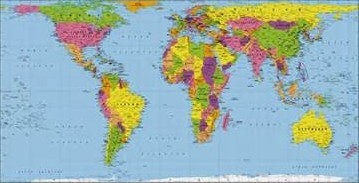Seeking Faith Amidst Evil Fosters Hope
QUOFLECTIONS™
ON SPIRITUALITY & ETHICS
“Be not afraid of life.
Believe that life is worth living,
and your belief will help create the fact.”
William James
I lead meetings with fathers brutalized by Rhode Island Family Court. I sometimes wonder how these fathers, who deeply love their children, cope with their continuing grief. For years, they are permitted limited contact with their children. Some, whose children have been alienated by a vindictive spouse, have no contact with their children.

I am fortunate. Despite a 4½ year custody battle, I was able to maintain a strong relationship with my son. For most of this period, I had him approximately 1/3 of the time—far more time than many fathers have with their children.
For nearly five years I lived in fear: I feared I would never have enough time with my son; I feared I would not be able to impart the lessons I wanted to teach him; I feared, in the fall of 1999, I would avoid homelessness only by moving in with out-of-state relatives—and communication with my son would be limited to long-distance telephone calls.
Overcoming Fears
Was there some basis for these fears? This question misses the point. True, these fears were based on experiences that were painfully real. But this does not mean I had to live in fear.
Faith is the antidote for fear. We know this intellectually. But as someone once observed, the greatest distance in all our travels is the journey from head to heart. When victimized, we need not think like a victim. We misperceive reality when concluding that justice will never be realized, life’s setbacks eclipse hope, and joy is illusory.
One day, my fears are transformed. I had been praying for six months for the ability to forgive my ex-wife. Then it happens: a peacefulness settles over me that words cannot express. I feel no animosity toward her. Simultaneously, I no longer feel like a victim. I realize that how I respond to injustice teaches my son valuable lessons about life—and these lessons exceed even the importance of the quantity of time we spend together.
True, the wounds of the past are never fully healed. Similar injustices in the present reanimate yesterday’s anguish—just as physical injuries aggravate past impairments.
But a broader perspective diminishes the burdens of tragedy. I now realize that to focus primarily upon life’s wounds unnecessarily impedes joy while intensifying misery.
Yes, this more expansive outlook must be practiced in the midst of grief: Being thankful for family and friends; recognizing God’s caring presence in all circumstances; viewing painful challenges as opportunities for growth. Perceiving good in the midst of evil fosters hope—and encourages us to embrace struggle with the perseverance and power God provides.

A victim’s mentality is characterized by anger focused on past inequities; sensitivity toward present offenses; and fear of future injustices. This anger, sensitivity and fear is based on powerful experiences—-but they need not overpower us.
Instead, let us adopt an attitude of faith that perceives blessings even amidst evil—-addressing the fears that paralyze—-with gratitude for the past; awareness of goodness in the present; and the sustaining hope that God, people and resources will be available so we can cope and even thrive as we face the future.
As for the fathers whom I meet this week, they require a more radical healing-—a healing necessitated by the continuing injustices dispensed by Rhode Island Family Court.
©2003 Harry Rix. All rights reserved.
Related articles
Does God Need Us?
Glimpsing the Creator
Why Strive to Forgive?
Creating Happiness is a Choice
Where are You, God?

